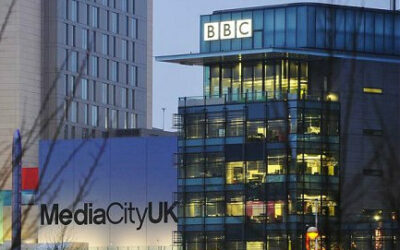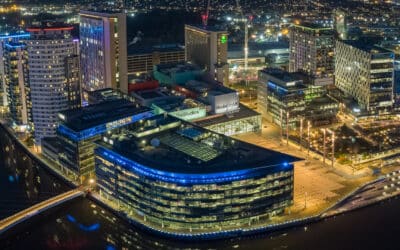It’s been a hectic 48 hours since details of the BBC’s latest round of cost cutting began to emerge following staff calls on Monday.
In that time we’ve heard of the threat of mass redundancies in local radio, counter claims of limited job cuts and new roles in digital positions to balance the cuts that are made, news of merging and regionalisation of local content, and this afternoon the BBC reducing its property footprint in both London and the North West to save money and cut emissions.
Unsurprisingly, politicians have been quick to respond to the developments. The Minister for Digital, Media, Culture and Sport, Julia Lopez, expressed “concern” in the House of Commons yesterday, and revealed that ministers had not been consulted ahead of the BBC’s announcements.
This is perhaps somewhat surprising since current BBC director general Tim Davie could be viewed as very much one of the government’s own – the former deputy chair of Hammersmith and Fulham Conservative Party unsuccesfully stood as a Conservative councillor in the borough in 1993, and was made a Tory peer by Boris Johnson in 2020.
Lopez said in the house: “We do have concerns about the proposals, which we were not given notice of. I want to take this opportunity to stress that the BBC is rightly operationally and editorially independent from the Government, and decisions on service delivery are ultimately a matter for them. However, the Government is disappointed that the BBC is reportedly planning to make such extensive cuts to its local radio output.”
Lopez has been somewhat conspicuous by her absence on social media since the news broke. Her only tweet this week was a very much on-message retweet of HM Treasury’s household financial aid plans for energy bills this winter.
The same cannot be said for Labour’s Shadow Secretary of State for Digital Culture Media and Sport, Manchester Central MP Lucy Powell. She took to Twitter to accuse the government of putting “the BBC’s long-term future at risk,” quoting Barnsley East MP and Labour colleague, Stephanie Peacock, who accused the government of “undermining” the BBC in the process.
Local radio is one of the things the BBC does best. It’s a very important part of its public service remit. The Government have put the BBC’s long-term future at risk. But the BBC itself should look again at these proposals for local radio. https://t.co/54K4w6bFYe
— Lucy Powell MP (@LucyMPowell) November 1, 2022














